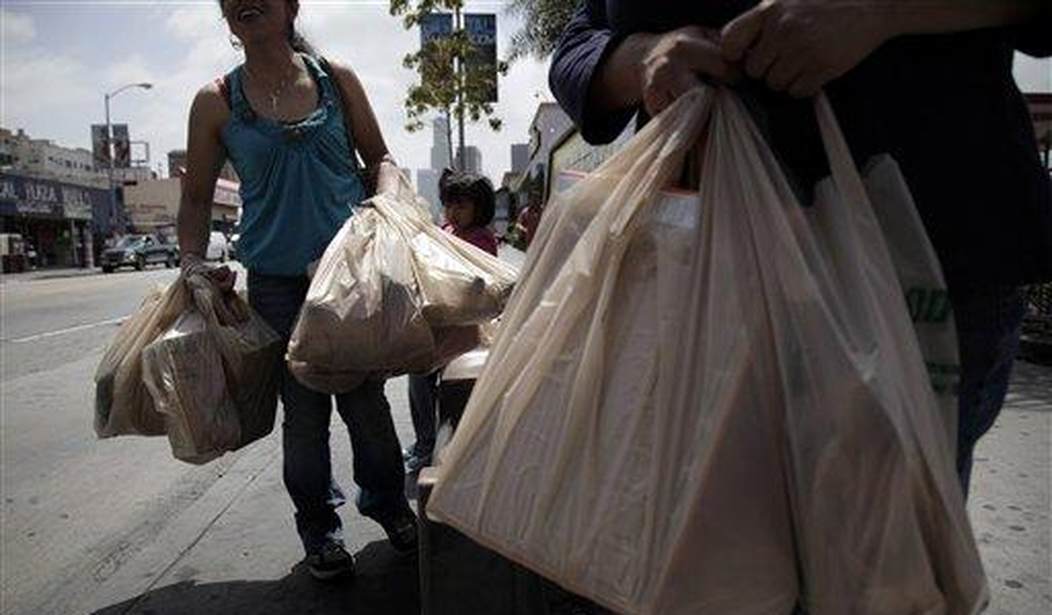When New Jersey Gov. Phil Murphy, a Democrat, signed legislation banning single-use plastic bags in 2020, he called them “one of the most problematic forms of garbage,” and said they result in millions of bags ending up in “landfills, rivers and oceans.”
He argued the law, which would take effect two years later in May of 2022, would directly tackle plastic pollution and help “mitigate climate change and strengthen our environment for future generations.”
But according to a new study, not only has that not happened, the plastic pollution problem has gotten worse.
"Following New Jersey’s ban of single-use bags, the shift from plastic film to alternative bags resulted in a nearly 3x increase in plastic consumption for bags," a study published earlier this month from Freedonia Custom Research found.
Prior to the ban, 53 million pounds of plastic shopping bags were used in the Garden State, which has skyrocketed to 151 million pounds since the ban took effect.
The reusable bags require more plastic to make as single use ones, and shoppers only end up reusing them a few times on average, according to the study.
“[Six times] more woven and non-woven polypropylene plastic was consumed to produce the reusable bags sold to consumers as an alternative,” Freedonia Group reported. “Most of these alternative bags are made with non-woven polypropylene, which is not widely recycled in the United States and does not typically contain any post-consumer recycled materials. This shift in material also resulted in a notable environmental impact, with the increased consumption of polypropylene bags contributing to a 500% increase in greenhouse gas (GHG) emissions compared to non-woven polypropylene bag production in 2015. Notably, non-woven polypropylene, NWPP, the dominant alternative bag material, consumes over 15 times more plastic and generates more than five times the amount of GHG emissions during production per bag than polyethylene plastic bags.”
Recommended
And these unintended consequences are likely occurring across the country, as New Jersey joins California, Colorado, Connecticut, Delaware, Hawaii, Maine, New York, Oregon, Rhode Island, Vermont and Washington in having statewide bag bans, according to Forbes.
























Join the conversation as a VIP Member